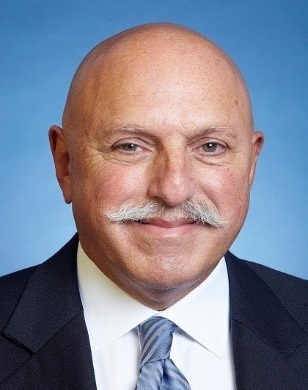Recorded: May 30th | 2024 Watch
Understanding the intricacies of nth party relationships is paramount for effective risk management. Optimizing risk classification in nth party relationships entails a multifaceted approach geared towards enhancing visibility, comprehending dependencies, and implementing proactive risk management strategies.
In this webinar we will delve into the concept of nth party relationships, the inherent risks involved, and strategies for optimizing risk classification in these relationships. Attendees will gain insights on:
- Advanced machine learning methodologies and how they can enhance risk scoring and classification systems.
- Strategies to integrate risk scoring and classification systems with diverse data sources, including fraud detection systems, ICT systems, and transactional systems, to foster a comprehensive view of data.
- The benefits of implementing ongoing monitoring processes and increasing automation in forensic analytics processes, as well as integrating with blockchain technology for heightened security and data integrity.
- How social media and text analytics can help augment risk scoring and classification systems by providing valuable insights into individual behaviors, entity interactions, and emerging events.
Moderator
 Colin Whittaker, PCI Industry Alumni, Founder and Director Informed Risk Decisions Ltd. Colin has been instrumental in driving forward a risk and security strategy for payments over the last 15 years since he retired from the military in 2001, and took up the role of Head of Security at APACS. Whilst there he was one of the first people to be elected to the PCI SSC Board of Advisors where he was always keen to try and promote the differences in threat between Europe and UK, and the US. Since that election he hasn't moved far from the PCI domain. In 2010 he moved to Visa Europe and became the Vice President Payment System Risk with responsibilities for designing and operating the Visa Europe PCI compliance strategy for European merchants and service providers. He was also responsible for coordinating Visa Europe's approach to cardholder data breaches in Europe, and for the changes to the Visa Europe Compliance strategy through the creation of the Technology Innovation Programme which gave the very first PCI DSS compliance relief for EMV chip accepting merchants. In 2015 he went independent and currently provides cyber security risk consultancy services to a wide range of public and private companies. Colin has presented on Information Security at major events around the world, and has published a number of papers on security.
Colin Whittaker, PCI Industry Alumni, Founder and Director Informed Risk Decisions Ltd. Colin has been instrumental in driving forward a risk and security strategy for payments over the last 15 years since he retired from the military in 2001, and took up the role of Head of Security at APACS. Whilst there he was one of the first people to be elected to the PCI SSC Board of Advisors where he was always keen to try and promote the differences in threat between Europe and UK, and the US. Since that election he hasn't moved far from the PCI domain. In 2010 he moved to Visa Europe and became the Vice President Payment System Risk with responsibilities for designing and operating the Visa Europe PCI compliance strategy for European merchants and service providers. He was also responsible for coordinating Visa Europe's approach to cardholder data breaches in Europe, and for the changes to the Visa Europe Compliance strategy through the creation of the Technology Innovation Programme which gave the very first PCI DSS compliance relief for EMV chip accepting merchants. In 2015 he went independent and currently provides cyber security risk consultancy services to a wide range of public and private companies. Colin has presented on Information Security at major events around the world, and has published a number of papers on security.
Panel
 Conner Reznicek is the Lead Solutions Engineer at HackNotice, and specializes in optimizing SaaS-based applications. Throughout his career, Conner has collaborated with clients across diverse industries and company sizes, from SMBs to Fortune 500 enterprises. Before establishing himself in the cybersecurity sector, he honed his skills in manufacturing, particularly in streamlining supply chain and production processes. Conner is deeply committed to making a positive impact in the cybersecurity space, focusing on enhancing user and vendor-related threat intelligence.
Conner Reznicek is the Lead Solutions Engineer at HackNotice, and specializes in optimizing SaaS-based applications. Throughout his career, Conner has collaborated with clients across diverse industries and company sizes, from SMBs to Fortune 500 enterprises. Before establishing himself in the cybersecurity sector, he honed his skills in manufacturing, particularly in streamlining supply chain and production processes. Conner is deeply committed to making a positive impact in the cybersecurity space, focusing on enhancing user and vendor-related threat intelligence.
 Steve Tobias, Lead Client Success Advisor. As a Lead Client Success Advisor at RiskRecon by Mastercard, Steve partners with clients from various industry sectors to ensure they get the most out of the RiskRecon platform. He leverages his risk management experience to provide recommendations for incorporating vendor security ratings into and maturing third-party cyber risk management programs. His 20+ years of cybersecurity experience include information security, frameworks, governance, risk & compliance, third-party risk management and cyber risk program development. Prior to RiskRecon\Mastercard, he led a cyber risk management team and helped develop a cyber risk/TPRM program in the Healthcare sector. Steve holds a Bachelor’s in Information Systems Management, as well as CISSP, CISM and CTPRP certifications.
Steve Tobias, Lead Client Success Advisor. As a Lead Client Success Advisor at RiskRecon by Mastercard, Steve partners with clients from various industry sectors to ensure they get the most out of the RiskRecon platform. He leverages his risk management experience to provide recommendations for incorporating vendor security ratings into and maturing third-party cyber risk management programs. His 20+ years of cybersecurity experience include information security, frameworks, governance, risk & compliance, third-party risk management and cyber risk program development. Prior to RiskRecon\Mastercard, he led a cyber risk management team and helped develop a cyber risk/TPRM program in the Healthcare sector. Steve holds a Bachelor’s in Information Systems Management, as well as CISSP, CISM and CTPRP certifications.
 Sean McGovern is a Senior Solutions Engineer with over 5 years of GRC technology and consulting experience. After graduating from Syracuse University, he began his career with Ernst & Young’s Risk Transformation group and later worked for Deloitte’s Cyber Risk and Strategy practice. He was primarily responsible for the design and implementation of GRC technologies for clients from a wide range of industries. While working with companies maturing their GRC programs, he’s had the pleasure of overseeing the integration processes with platforms such as Splunk, Jira, Qualys, Tenable, Rapid7, ServiceNow, Slack, H-ISAC Threat Intelligence, and many others! Since joining LogicGate, Sean has helped prospective customers maximize the value of LogicGate’s Risk Cloud platform for their GRC Programs.
Sean McGovern is a Senior Solutions Engineer with over 5 years of GRC technology and consulting experience. After graduating from Syracuse University, he began his career with Ernst & Young’s Risk Transformation group and later worked for Deloitte’s Cyber Risk and Strategy practice. He was primarily responsible for the design and implementation of GRC technologies for clients from a wide range of industries. While working with companies maturing their GRC programs, he’s had the pleasure of overseeing the integration processes with platforms such as Splunk, Jira, Qualys, Tenable, Rapid7, ServiceNow, Slack, H-ISAC Threat Intelligence, and many others! Since joining LogicGate, Sean has helped prospective customers maximize the value of LogicGate’s Risk Cloud platform for their GRC Programs.
 John Bree is Chief Evangelist & Advisory Board Co-Chair with Supply Wisdom the industry leading solution for Real-Time and Continuous Risk Intelligence & Monitoring of Third Parties and Locations. Before joining Supply Wisdom, John held senior positions in New York, Tokyo, Singapore, and London for Citi and Deutsche Bank covering corporate, investment, commercial, and consumer banking internal and vendor operations. He has proficiency in developing and implementing analysis, operations, monitoring, and investigation systems and processes involving transaction accounts, credit cards, debit cards, and online banking. John has managed global staff and corresponding budgets in multiple locations and delivered cost-efficient and operationally effective programs ensuring compliance with local and global regulatory requirements. Through interaction with Business Units, Internal Audit, and regulatory agencies, his teams have resolved MRIAs, MRAs, and Findings, on time and without penalty. John is a member of the Shared Assessments US Steering Committees and Co-Chair of the Financial Industry Vertical Strategy Group. He has authored numerous articles and blogs on Third Party Risk Management and Governance in the Digital era.
John Bree is Chief Evangelist & Advisory Board Co-Chair with Supply Wisdom the industry leading solution for Real-Time and Continuous Risk Intelligence & Monitoring of Third Parties and Locations. Before joining Supply Wisdom, John held senior positions in New York, Tokyo, Singapore, and London for Citi and Deutsche Bank covering corporate, investment, commercial, and consumer banking internal and vendor operations. He has proficiency in developing and implementing analysis, operations, monitoring, and investigation systems and processes involving transaction accounts, credit cards, debit cards, and online banking. John has managed global staff and corresponding budgets in multiple locations and delivered cost-efficient and operationally effective programs ensuring compliance with local and global regulatory requirements. Through interaction with Business Units, Internal Audit, and regulatory agencies, his teams have resolved MRIAs, MRAs, and Findings, on time and without penalty. John is a member of the Shared Assessments US Steering Committees and Co-Chair of the Financial Industry Vertical Strategy Group. He has authored numerous articles and blogs on Third Party Risk Management and Governance in the Digital era.













